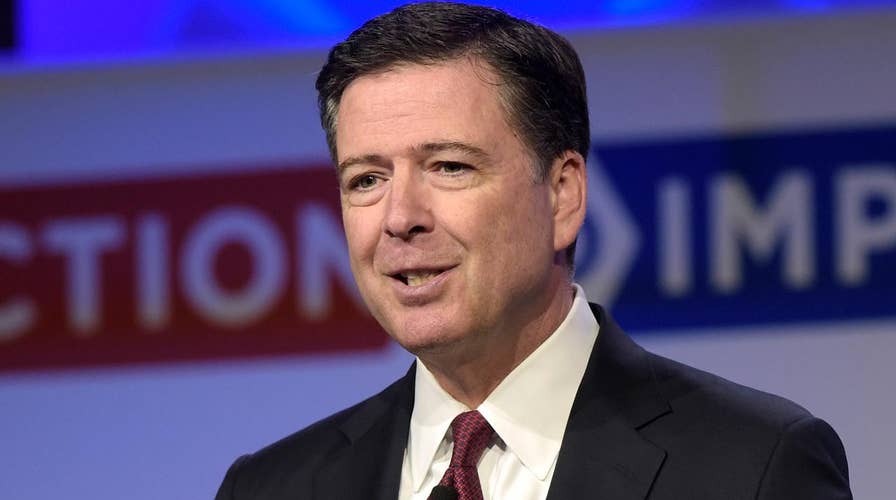Optics of White House letting Comey testimony play out
Former Deputy Assistant Attorney General Thomas Dupree Jr. weighs in
Then-FBI Director James Comey asked Attorney General Jeff Sessions to keep him from being alone with President Donald Trump, The New York Times and Associated Press reported Tuesday night.
The Times, which first reported on Comey's request to Sessions, said it came after Trump had asked Comey in February to end an investigation into Trump's first national security adviser, Michael Flynn.
According to the paper, Comey pulled Sessions aside and told him that private interactions between the president and the FBI director were inappropriate. Sessions reportedly responded that he could not guarantee that Trump would not seek out Comey again.
The Times report, which cited current and former law enforcement officials, added that Comey did not specify his issue with Trump in the conversation with Sessions.
Separately, The Washington Post reported Tuesday that Director of National Intelligence Dan Coats told associates that Trump had asked him in March if he could intervene with Comey to get the FBI to back off the Flynn angle in its counter-intelligence probe of alleged links between Russian officials and the Trump campaign.
The latest revelations came out days before Comey makes a highly-anticipated appearance before the Senate intelligence committee — and as the White House and its allies craft a strategy aimed at undermining the former FBI Director's credibility. Both White House officials and an outside group that backs Trump plan to hammer Comey in the coming days for misstatements he made about Democrat Hillary Clinton's emails during his last appearance on Capitol Hill.
An ad created by the pro-Trump Great America Alliance -- a nonprofit "issues" group that isn't required to disclose its donors -- casts Comey as a "showboat" who was "consumed with election meddling" instead of focusing on combating terrorism.
The Republican National Committee has been preparing talking points ahead of the hearing, which will be aired live on multiple TV stations. An RNC research email Monday issued a challenge to the lawmakers who will question Comey. There's bipartisan agreement, the email says, that Comey "needs to answer a simple question about his conversations with President Trump: If you were so concerned, why didn't you act on it or notify Congress?"
Comey's testimony before the Senate intelligence committee marks his first public comments since he was abruptly ousted by Trump on May 9. Since then, Trump and Comey allies have traded competing narratives about their interactions. The president asserted that Comey told him three times that he was not personally under investigation, while the former director's associates allege Trump asked Comey to shut down the investigation into Flynn, who was fired as national security adviser because he misled the White House about his ties to Russia.
Democrats have accused Trump of firing Comey to upend the FBI's Russia probe, which focused in large part on whether campaign aides coordinated with Moscow to hack Democratic groups during the election. Days after Comey's firing, the Justice Department appointed a special counsel, former FBI Director Robert Mueller, to oversee the federal investigation.
Despite the mounting legal questions now shadowing the White House, Trump has needled Comey publicly. In a tweet days after the firing, he appeared to warn Comey that he might have recordings of their private discussions, something the White House has neither confirmed nor denied.
White House officials appear eager to keep the president away from television and Twitter Thursday, though those efforts rarely succeed. White House spokesman Sean Spicer said the president plans to attend an infrastructure summit in the morning, then address the Faith and Freedom Coalition's "Road to Majority" conference at 12:30 p.m.
"The president's got a full day on Thursday," Spicer said.
The White House had hoped to set up a "war room" stocked with Trump allies and top-flight lawyers to combat questions about the FBI and congressional investigations into possible ties between the campaign and Russia. However, that effort has largely stalled, both because of a lack of decision-making in the West Wing and concerns among some potential recruits about joining a White House under the cloud of investigation.
Click for more from The New York Times.
The Associated Press contributed to this report.











































